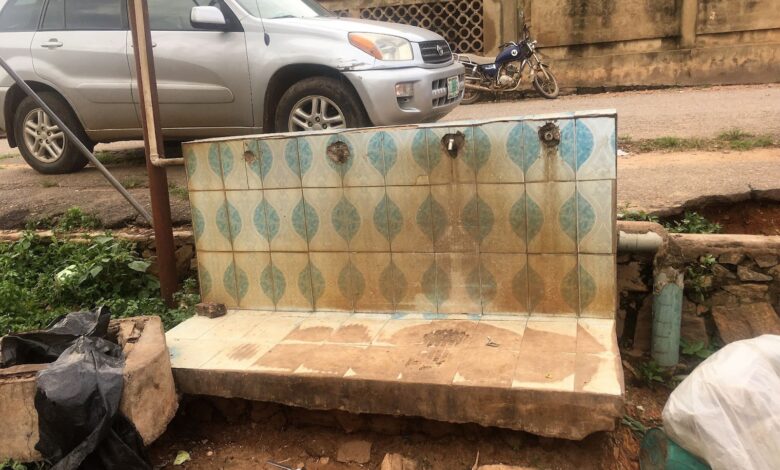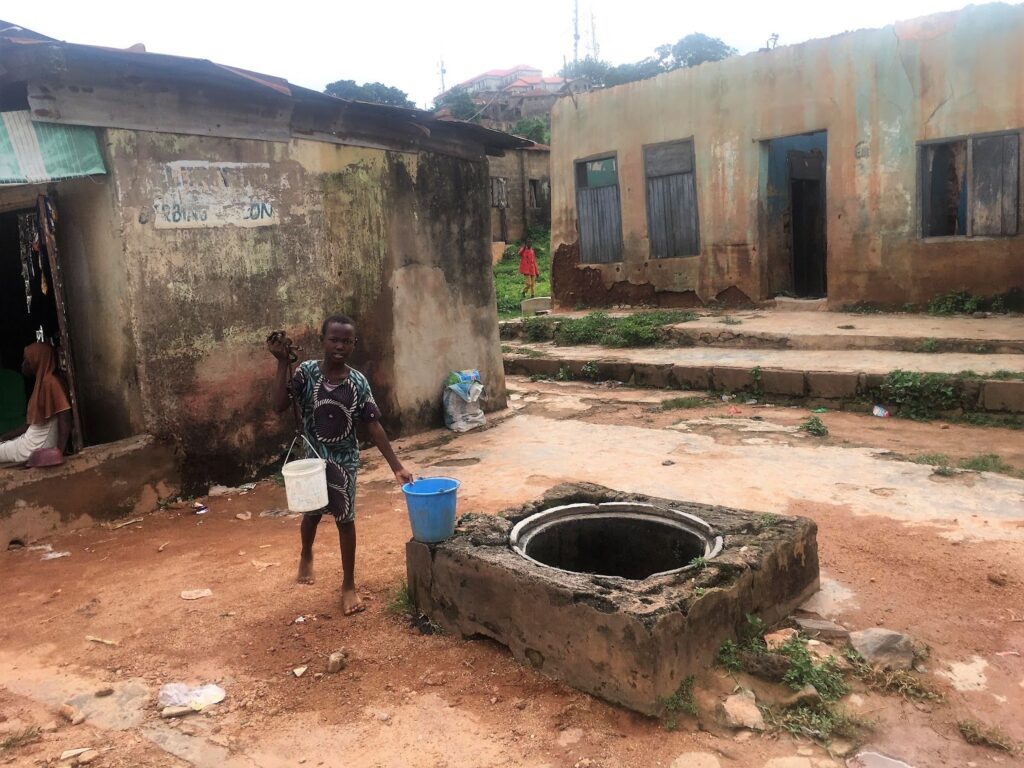‘We Depend On Rain For Water’: Residents In Ibadan Community Lament Scarcity
Boreholes dug by the state government several years ago only worked for a short while.

Salaudeen Safurat, 67, is one of many residents struggling to access potable water in the Mapo area of Ibadan, Southwest Nigeria. She walks a long distance daily to get water from a hand-dug well for household use or buys it at a costly price.
Safurat says she is more pained because her house was used as a store for construction equipment in 2013 when the Oyo State Government drilled boreholes at different communities in the area. Eleven years later, nothing has changed as the boreholes failed to supply water.
“We were very happy and everyone was eager to render any assistance that would quicken the construction and give us free access to good water,” she recalled.
“We hoped that would be the end of going through stress; paying before using good water, not knowing they were fooling us. When I could not walk long distances anymore, I started fetching from the well beside my house until I had a cut on my hand. My neighbour’s children now assist me.”
Amidu Sulaimon, another resident who has lived in the area for over two decades, told HumAngle that after the completion of the borehole drilling project, engineers assured residents access to potable water.
“Since they finished the constructions, none of the boreholes are able to supply water except the ones that worked for a few months and later stopped. Those that are currently in use are privately owned and for commercial gain,” he said as he took this reporter around the community.
“When we want to cook or drink, we buy water and for people that can’t afford to pay ₦70 ($0.17) for a 25-litre keg, they fetch from the well.”
Onuh Friday, who travelled from Ebonyi to make a living and resides in Oke-Dada, mentions that they are taking advantage of the rainy season to fill their reservoirs as they save up money to resume buying water during the dry season.
“There is nothing like water in this place. It is only God. Thank God it is the rainy season. Just like you are seeing these buckets, we are waiting for the rain to fall. All of us right now are in God’s hands. When the rain begins to fall, you will see us filling our kegs and jubilating because that’s how we survive.”
The Mapo area of Ibadan sits on rocky terrain, known as the Mapo Hill (Oke-Mapo) which houses Ibadan South-East Local Government Council and Mapo Court as well as the famous Mapo Hall. Because of the nature of the geography, residents face hardship even when they try to dig wells. The development, HumAngle learnt, makes access to clean water difficult for those living in the axis.
“If there’s anything the government can do to help us, they should please do it. We are suffering,” said Onuh. “We have more than six boreholes in this area, but none is working. They came here; surveyed everything, started the project and left. We didn’t see any impact in the long run.”
A community leader, Jimoh Raji, said he, alongside other leaders, compiled and submitted the names and phone numbers of the community members that would be in charge of the maintenance of the boreholes when the project started, but “nothing has changed about the struggle to get good water for us. We only forget about this suffering when it’s the rainy season.”
“Since the completion and till now, we are still on the same problem,” he said.

According to the 2021 Water, Sanitation and Hygiene-National Outcome Routine Mapping (WASH-NORM) report, only 14 per cent of Oyo State’s population has access to safely managed water from improved sources. Others use contaminated water. Coupled with poor sanitation, this causes preventable diseases such as cholera, diarrhoea, and typhoid.
This reporter observed that most wells in the Eleyo and Oranya parts of the town have no cover. Hygiene practices are also poor in the use of the facilities.
Speaking on the danger associated with this, Adewale Adeleye, a resident doctor at the University of Abuja Teaching Hospital, said, “Before the water could be safe for human consumption, it must first be appealing to the eye; having no colour, odour and taste. And one of the biological properties of water is coliform. When there is rainfall and it flushes faeces and other wastes down to the surface of the drinking water, it gets polluted by faecal contamination that is dangerous to human health.”
“Although there are some chemicals (like chlorine) used to purify water, some of these chemicals have a specific quantity that is expected and safe to be added in the water before use,” he added.
When contacted about the complaints of Mapo residents, Dr Adebayo Akinwandele, the state water corporation chairman, said he was appointed to the position in July and was “just trying to understand the situation at hand”. He, however, promised to look into the challenges.
Support Our Journalism
There are millions of ordinary people affected by conflict in Africa whose stories are missing in the mainstream media. HumAngle is determined to tell those challenging and under-reported stories, hoping that the people impacted by these conflicts will find the safety and security they deserve.
To ensure that we continue to provide public service coverage, we have a small favour to ask you. We want you to be part of our journalistic endeavour by contributing a token to us.
Your donation will further promote a robust, free, and independent media.
Donate HereStay Closer To The Stories That Matter




